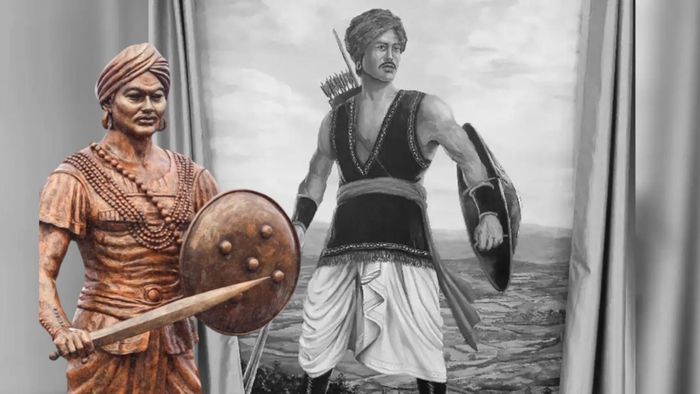Remembering U Tirot Sing Syiem: A Khasi chief's fight against British colonialism
Today marks the 189th death anniversary of U Tirot Sing Syiem, a Khasi chief known for his resistance against British colonialism. His legacy is being honoured through memorials and modern technology, ensuring his story inspires future generations.

- Jul 17, 2024,
- Updated Jul 17, 2024, 3:09 PM IST
Today, July 17, 2024, marks the 189th death anniversary of U Tirot Sing Syiem, a Khasi chief whose struggle against British colonialism in the early 19th century remains a powerful symbol of resistance in Northeast India.
Born into the Syiemlieh clan, Tirot Sing became the Syiem (chief) of Nongkhlaw in the Khasi Hills. His leadership was characterised by shared authority with a council representing leading clans, showcasing a form of constitutional governance.
The conflict with the British East India Company began in 1826 when David Scott sought to build a road through Tirot Sing's territory, to link Sylhet with Assam. Initially agreeing, Tirot Sing soon realised the hidden motives behind this project, thanks in part to warnings from his comrade U Bor Manik Syiem, the Syiem (King) of Shyllong.
On April 4, 1829, Tirot Sing led an attack against British forces, marking the start of the Anglo-Khasi War. For four years, he and his people fought valiantly against the colonial powers, using their knowledge of the terrain and guerrilla tactics to resist the technologically superior British forces.
Despite being outnumbered and outgunned, Tirot Sing's forces held off the British for an extended period. However, the might of the British Empire eventually prevailed. Tirot Sing was captured after being betrayed while hiding in caves, Krem Siej Tyra and Krem Pyrda.
Even in defeat, Tirot Sing remained defiant, famously stating, "Better die an independent king than reign as the vassal." He died in captivity in Dhaka on July 17, 1835, but his spirit of resistance continues to inspire.
In recent years, efforts to commemorate U Tirot Sing have gained momentum. This year, a memorial dedicated to him was inaugurated in Dhaka, Bangladesh, where he spent his final days. Further, a bust of the Khasi Hills freedom fighter was unveiled at the same location, further cementing his place in history.
The legend of U Tirot Sing has also been revived through modern technology. A group of talented young people from Meghalaya created "U Syiem," the first animated movie of its kind in the state and the Northeast region. This innovative project aimed to bring the story of U Tirot Sing's valour to a wider audience, particularly younger generations, using the latest animation techniques.
ALSO WATCH:
On this 189th death anniversary, Meghalaya Chief Minister Conrad K Sangma paid tribute on Twitter, writing: "Remembering U Tirot Sing, a fearless freedom fighter, on his 189th death anniversary. Let's honour his bravery & sacrifice, and be inspired to protect our land, culture & traditions. May his legacy motivate us to stand up for our beliefs, fight for justice & equality."
Comparing Tirot Sing to modern leaders highlights both differences and enduring principles. His commitment to his people's sovereignty and willingness to sacrifice for a greater cause stand in contrast to some contemporary politicians who prioritise personal gain. Tirot Sing's collaborative leadership style also offers lessons in inclusive governance.
As we remember U Tirot Sing today, his legacy serves as a reminder of the spirit of resistance and prompts reflection on the values of freedom, cultural preservation, and principled leadership in our modern world. The ongoing efforts to commemorate his life through memorials, art, and technology ensure that his story continues to inspire future generations.